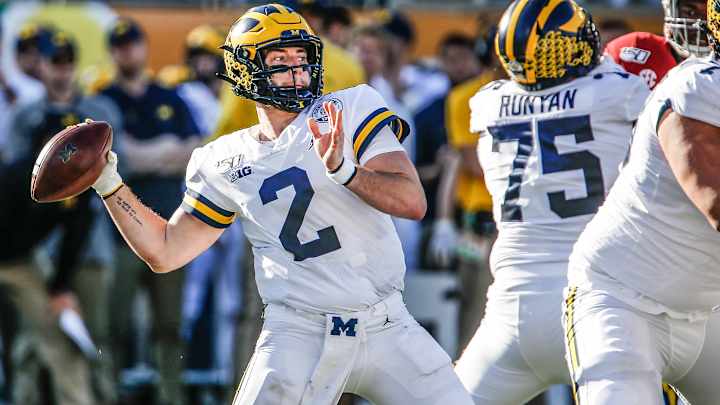Analyst: New Transfer Proposal Presents Two Sides Of The Same Coin

Transfer eligibility within college football has been a long standing debate for the NCAA. For years, the rule in five major NCAA-sponsored sports — football, men’s basketball, women’s basketball, baseball and hockey — was that if an undergraduate athlete transferred with eligibility remaining, they would have to sit out a year before being able to play for their new school. There are special exceptions to the rule, where an athlete can be eligible immediately upon transferring.
A recent example in the Big Ten is current Ohio State quarterback Justin Fields, who transferred from the University of Georgia following his true freshman season. Fields was granted immediate eligibility from the NCAA for 2019 after he cited “mitigating circumstances,” originating from an incident where he received racial slurs from a Bulldogs' baseball player in the stands during a game against Tennessee, per reports.
Cases such as Fields’ — receiving immediate eligibility when transferring as an undergrad — are an anomaly, not the norm. However, the Big Ten Conference is leading the charge to allow any athlete in any sport to transfer one time without penalty. This proposal, which wouldn’t be put into place until 2021 at the earliest, would create a sense of consistency amid all of the NCAA sports regarding student-athlete movement.
Former Michigan quarterback Devin Gardner (2010-14), the “Monday Morning Quarterback” guest on “Inside the Huddle with Michael Spath,” played with several players who might have transferred had they been afforded the option of not having to sit out for a season.
“Take me out of it, in general I think a lot of guys would transfer,” Gardner said. “I can think of a lot of guys who were there when I got there who thought they might have gotten some opportunity somewhere else, but just didn’t want to have to go through the transfer and not be able to play.
"When you can go right away and play, it makes it a lot different because you can go prove yourself instantaneously, and you don’t give a guy in your position a chance to prove that he can play. I think they should be able to [transfer without penalty] because in life you get redos.
“You aren’t perfect, so why do we expect 17- and 18-year old kids to be perfect at making decisions when many different people make bad decisions and they just get a redo? And then these kids are punished for circumstances that are sometimes out of their control.”
There are possible drawbacks to the new proposal that have been speculated. An 18- or 19-year old making a snap decision to leave a place that they had committed to and been preparing to spend the next phase of their life at could bring negative consequences. Having that power would give these young men and women a lot to think about from the day that they step on to campus.
“That’s going to happen a ton, but it’s happening now,” Gardner said. “If you have money, if you have a lawyer, you can go and do whatever you want at any moment. That’s just putting guys that can’t afford that at a disadvantage, so give everybody the same playing field. Now you get a chance to redo it.
"At some point, you have to become an adult, and now you’re forced to take responsibility after that first initial ‘hey, I don’t want to be here.’
“I think the prior history in your life creates that atmosphere for you. You love that opportunity to prove yourself, when it comes, and you can’t buy your way out of it.”
What do you think of the proposed rule? What ripple effect would it have on the landscape of college football? Comment below!!!
